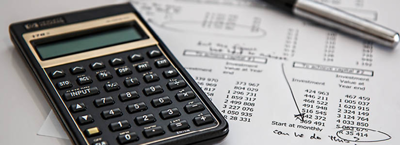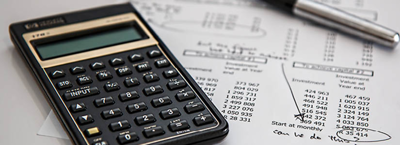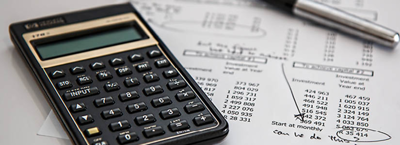
In the old days, when we all used cash, it was far easier to notice where our money went. Now, when a quick tap is all you need to buy a coffee, our bank accounts can seem to empty themselves about 10 minutes after payday.
Among a cluster of direct debits, subscriptions to Netflix and Spotify and countless low-value tap to pay transactions, the average bank statement is a lengthy and off-putting document. With new mobile banking apps, however, you can split your bank statement into easily-digestible sections so you can see exactly where your money is going.
This can help you save money sustainably, so you won’t run out of money at the end of the month and have to turn to unethical payday loans. If you are in the red (these things happen), contact us at Salad Money instead; we offer fair and affordable loans to NHS employees through open banking - no need for credit checks!
You are unique and so is your spending. Being able to customise your banking app will enable you to understand the true cost of your hobbies, luxuries or weaknesses, such as your daily coffee, expensive stationery or bacon bagels. Very often, the smaller items really do add up so, by cutting down, you can make significant savings. Eliminating two takeout coffees a week could save you over £200 a year.
What are online-only banking apps?
With the advent of online banking, more and more digital banks have sprung up in your app store. They have all the capabilities of a traditional, bricks and mortar bank, but they do it all online; no more waiting in line at the bank!
It only takes a few minutes to open an account as well. You’ll still get a physical bank card and be able to shop online, cash in cheques and have access to a free savings account - but you can also do so much more!
Many people are choosing online banks because they want to be able to manage their outgoings easily and stay on top of their spending. Being more aware of where your money goes means it’s easier than ever to save money where you need to.
Subscriptions
One way that digital banking apps can help you save money is by reducing the number of subscriptions you have. Subscriptions have increased in popularity in recent years and are now a common way to pay for a wide variety of entertainment services. According to The Guardian, over four million UK households signed up to streaming services like Netflix, Disney+ and Amazon Prime in the first three months of the Coronavirus lockdown alone.
Unfortunately, subscriptions are easy to set up and forget about, so we often carry on paying even when we’re not using the service. This often happens if we stop going to the gym, visiting English Heritage sites or using a particular console. If you’re prone to setting up subscriptions, choose an app which promises subscription management features. With the average Brit spending £149 a month on subscriptions, you’ll probably be amazed by the savings you can make.
Most online banking apps send you notifications when money comes out of your account. This means you won’t be able to forget about a subscription as you’ll get a message every time you pay, which reminds you to cancel it if you don’t need it.
They are clear and easy-to-use
It’s really important to ensure that you find your banking app interface intuitive and clear, and you can easily access your information on your chosen devices. There’s no point having a mobile phone-only app if you want to manage your money on an iPad or laptop.
This is another plus for digital-only banks. As the only way you can access their services is through their app, they’ve often spent time and money making sure it is clear, stylish and easy-to-use. Traditional banks, however, usually have clunkier apps that are harder to get your head around as they rely more on their physical locations.
One of the best ways to get a feel for an app is to read user reviews. As well as the testimonials listed on app websites, you can find information on forums including the popular MoneySavingExpert. But if you don’t have time, we’ve put together a list of some of three of the most popular online banking apps you can find.
Best digital-only banking apps
Starling
The award-winning Starling Bank is one of Which?’s recommended providers for current accounts. Its free personal current account includes instant notifications when you buy something or get paid, as well as spending insights and budgeting tools. You can set money aside to save for ‘goals’ such as a holiday or a new car and opt to round up transactions to the nearest pound to ensure your savings grow. The bank has a score of 4.8 out of 5 on Trustpilot.
Monzo
Monzo promises to be a bank that makes life easier, not harder for its four million customers. You can’t have been able to miss people using it, as the card is a garish fluorescent orange.
Like Starling, Monzo’s users can save for goals, round up transactions and split bills. If you choose Monzo, you’ll be able to automatically sort your salary into separate pots for spending, saving and bills. The bills pot allows for management of direct debits and standing orders. Setting budgets for different categories allows you to track your spending and using a virtual card for online payments enables you to keep your real card details safe from fraudsters.
Revolut
Revolut is another free digital-only banking app that is best suited for people who travel often. This is because they have no fees for spending abroad or transferring money internationally, which can save you a lot of money on holidays. You can pay a monthly subscription to get a Premium or Metal account, which gives you a higher allowance of international spending and UK ATM withdrawals if you need it.
Like Monzo, Revolut has a virtual card which you can use to make online transactions. You can freeze this virtual card, or put a spending limit on it, meaning that it’s harder for people to steal your details when you’re shopping online. The company says that this has reduced fraud by 30%.
Are Online Banking Apps Safe?
You might be worried about having all your financial information on an app with no physical records at all. However, most online banking apps are protected by various governing bodies and have state-of-the-art authentication when you open the app.
For example, you’ll often find that an online banking app requires much more than just the traditional pin to log in. This could involve facial recognition, a fingerprint scan or voice recognition.
It’s always a good idea to check whether the app you want to use is regulated. Revolut, Monzo and Starling are all approved by the Financial Conduct Authority (FCA), but Revolut is not currently approved by the Financial Sevices Compensation Scheme (FSCS). The FSCS protects the first £85,000 of your savings if there is an issue with the bank.
It’s also easier and faster to recognise and stop fraud with online banking apps. If someone steals your card then you can immediately freeze it using the app, rather than having to call a bank and wait on hold. If someone has stolen your details online, then the moment they make a purchase you’ll be notified immediately so you can spring into action and report the crime as fast as possible.
The choice of whether to stick with your traditional bank or go fully digital is ultimately up to you. If you think you’d find it easier to budget with live spending notifications and the ability to easily see where you spend your money each month, then why not give digital banking a try? If you’d rather stick with your bank but you like the sound of the in-build budgeting capabilities, then have a look at our blog on the best budgeting apps on the market in the news section of our website.



